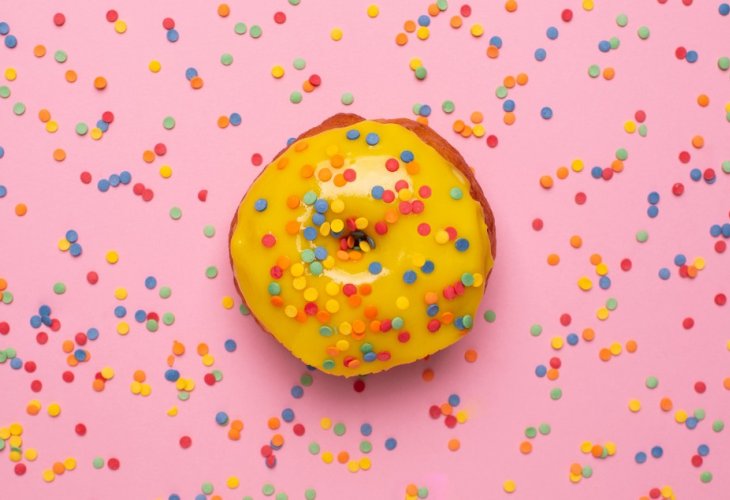Enhance the Menu, Not Your Health: Understanding Food Dyes
Food dye consumption remains prevalent in Israel, despite known health risks. Learn why we still buy them.
 (Photo: shutterstock)
(Photo: shutterstock)Purim is an excellent opportunity to examine exactly what role food dyes play in our diet. Despite widespread knowledge that food dyes are unhealthy, they continue to color gift baskets, birthday cakes, ice creams, and even beef. Let's clear this up: Just because they're called food dyes doesn't mean they're fit for consumption—it only means food has color. Moreover, the absence of a skull and crossbones label doesn't imply safety; it merely means they don't kill you immediately. Encouraging? Not really, especially as they may trigger allergies, migraines, hyperactivity, and more. In Israel and Europe, food dyes are marked with an "E" (short for Europe) followed by a number. Approximately 100 different food dyes are available in Israel.
Synthetic Food Dyes: These have infiltrated the food world directly from the textile industry. Some originate from coal tar, petroleum, and chemical compounds. These dyes are stable and don't fade. They give food a more appealing appearance and mask foods with defective color and texture, making them ideal marketing tools.
Natural Food Dyes: These are the fig leaves of food dyes, as one can always hope the dye in the candy is natural. Unfortunately, not many are. Natural food dyes are relatively expensive compared to their synthetic counterparts, are paler, less attractive, and less durable. Plus, not everything natural is healthy. Take caramel coloring labeled as E 150a; it's burnt sugar, which is unhealthy. E 150b is caustic sulfite caramel—caramel from salt and sulfuric acid—and E 150c, ammonia caramel. Though they all have natural origins, they're unhealthy. If a product contains natural food dye, trust that the manufacturer will clearly state it, considering the additional cost. If not stated, presume they aren't natural.
Bottles of Dye: If there were no buyers, there would be no sellers. It's hard to believe, but in Israel today, bottles of food dye are still sold in supermarkets. To inform readers, I checked the labels: contents include water, preservatives (E -211, E-202), citric acid, propylene glycol (an organic compound used for dissolving the dye), and food dye.
Medicines and Supplements: To appeal to consumers, especially children, some manufacturers coat them with vibrant food dyes. But when we use them, we hope to get healthier, not sicker. It seems some think differently.
Acceptable for Us: Many food dyes banned in Western Europe and Norway are permissible in Israel. Let's ponder: if it's bad for them, it's bad for residents of Zion. Searching for the guidelines on allowable quantities in Israel often yields the label "permissible in reasonable quantity." This begs the question, what is a reasonable quantity? It turns out each manufacturer can decide for themselves if the amount is reasonable.
Gift Baskets: You can prepare gift baskets for children without food dyes. For example, include chocolate, pretzels, sunflower seeds, and marzipan without food coloring. It may still be a gift of sweets, but at least it won't contain coal tar and other harmful substances.
Wishing everyone a healthy, happy, and humorous Purim.
Want to know more? Purchase the lecture series "Growing Healthy" delivered by naturopath Sarah Bar Asher at the Jewish Campus of Hidabroot.
Sarah Bar Asher is a naturopath and lecturer on nutrition and the food industry. Barasher@zahav.net.il

